Digital censorship, democracy in India and ancient curses are just some of the topics that UChicago faculty will explore as part of the Neubauer Collegium for Culture and Society’s 2018-19 cycle of collaborative research projects, announced today.
This year’s projects, as in previous years, include collaborations with scholars and practitioners from other institutions in the United States and abroad. In its first six years, the Neubauer Collegium will have supported 80 projects led by 143 UChicago faculty, representing all departments in the Division of the Humanities and Division of the Social Science, as well as divisions and professional schools across the University.
“These are remarkable faculty-led collaborations,” said Prof. Jonathan Lear, the Roman Family Director of the Neubauer Collegium. “It is a true pleasure to work with researchers on such creative and significant projects. I am grateful to the Faculty Advisory Board for the care and discernment they brought to their selection of this year’s projects.”
The following Neubauer Collegium faculty research projects will begin in July 2018:
Censorship, Information Control and Information Revolutions from Printing Press to Internet
Cory Doctorow (Electronic Frontier Foundation), Adrian Johns (History), Ada Palmer (History)
The digital revolution has unleashed a wave of new efforts to control information—from patent laws to the Great Firewall of China to the arrest of authors. This project will compare current controls with parallel responses to the print revolution in the early modern world, with the aim to inform policy and keep the digital world fertile for art and innovation.
The Contours of Black Citizenship in a Global Context
Jessica Swanston Baker (Music), Adom Getachew (Political Science), Yanilda María González (SSA)
Over the last two decades, social movements in the U.S., Latin America, the Caribbean and South Africa have raised questions about black citizenship, particularly in contexts where histories of slavery and colonialism have conceived of blackness as a sign of non-citizenship. This project will examine and compare cultural practices, ideologies and forms of resistance associated with these social movements to challenge contemporary notions of belonging.
Cultures of Protest in Contemporary Ukraine, Belarus and Russia
Yliya Ilchuk (Stanford University), Olga Solovieva (Comparative Literature)
Bringing together intellectuals and artists from Ukraine, Belarus and Russia, this project will explore the ideas of democracy, human and civil rights, and freedom of artistic expression. A productive dialogue among these three groups, each of which has pursued a distinct path toward post-Soviet national identity, will help to better understand shared histories of totalitarianism, the pursuit of democratic reform, and the critical role of art and culture in that endeavor.
Curses in Context
Christopher Faraone (Classics), Sofía Torallas Tovar (Classics)
Visiting Fellows: Richard Gordon (University of Erfurt), Celia Sánchez Natalías (University of Zaragosa)
Small lead tablets inscribed in Greek or Latin with private curses against rivals or wrongdoers reveal a darker side of ancient life that is often hidden. This project will examine recently discovered collections from Greece, Italy and Roman Germany, bringing together an international cohort of archaeologists, historians and philologists for comprehensive study of these curses in their local and archaeological context.
Emotion Construction without a Sense of the Body
Peggy Mason (Neurobiology), Lenore Grenoble (Linguistics)
Visiting Fellow: Lisa Barrett (Northeastern University)
This project will extend an investigation of “Kim,” a remarkable woman who relies on vision and hearing to see the world in the absence of touch and pain, and limited taste and smell. It will explore how the lack of those sensations impacts how she perceives and expresses affect and emotion.
Making Asylum
Evelyn Z. Brodkin (SSA), Staffan Höjer (University of Gothenburg, Sweden) Karen Nielsen Breidahl (Aalborg University, Denmark)
Sweden and Denmark, long known for their humanitarian commitments, have recently been challenged by the influx of millions of migrants and refugees. This project will break new ground in understanding how asylum is made in these countries, bringing together theory and practice to link the politics of the welfare state and local organizations with the lived experiences of asylum-seekers.
Motion and Meaning: Sign and Body Gesture in Dance Narratives Across Cultures
Diane Brentari (Linguistics), Anastasia Giannakidou (Linguistics), Haun Saussy (Comparative Literature)
Visiting Fellow: David Shulman (Hebrew University of Jerusalem)
This project will investigate how meaning is produced by the body, particularly in the context of classical Indian dance. By examining the gestures and facial expressions of dancers and the corresponding meanings as they are understood by audiences, the project will develop a “grammar” of bodily expression comparable to that of spoken and signed languages.
NigerHeritage: Research, Development and Planning for Novel Museum, Cultural Center and Field Station Facilities
Paul Adderley (University of Stirling), Mohamed Alhassane (Museum of Natural History, Paris), Ralph Austen (History), Lauren Conroy (Fossil Lab), Didier Dutheil (Terre-à-Terre), Bess Palmisciano (Rain for the Sahel & Sahara), Susan Rasmussen (University of Houston), Lisa Roberts (Naturalia, inc.), Rebel Roberts (Stantec), Paul Sereno (Organismal Biology and Anatomy)
Visiting Fellow: Mariam Kamara (Brown University)
This project continues rethinking the design and function of three sites in Niger—a museum, a cultural center for nomadic peoples and a fossil field site—each with a distinct role in the preservation of Niger’s paleontological, archaeological and cultural heritage. Scientists, social scientists, architects, planners and the public in Niger will collaborate to develop plans for these cultural initiatives, the ultimate goals of which include repatriation and cultural stewardship of artifacts originating from the region.
An Organon for the Information Age: Ontology-Based Data Integration for Humanistic and Biomedical Research
David Schloen (Oriental Institute), Samuel Volchenboum (BSD, Pediatrics), Malte Willer (Philosophy)
The era of “big data” has promised the discovery of unseen patterns and relationships to provide new insights, but technology struggles to combine disparate data with automated querying and analysis. This project will address the challenge by designing, testing and evaluating a new ontological tool for data integration.
Planetary History: Growth in the Anthropocene
Fredrik Albritton Jonsson (History), Dipesh Chakrabarty (History), Emily Lynn Osborn (History)
The recognition that our planet has entered a new geological epoch, marked by the global effects of climate change, has aroused a great deal of interest beyond the earth sciences. This project will explore the history of planetary change through close analysis of the biophysical dimension of economic development and the history of earth system science.
Theorizing Indian Democracy
Dipesh Chakrabarty (History), Jennifer Pitts (Political Science), Tejas Parasher (Political Science), Nazmul Sultan (Political Science)
Indian democracy has long been considered an exceptional case—an unlikely political system for a society marked by high levels of inequality, fragmentation and diversity. A close look at the meanings and practices of democracy in India will deepen our understanding of India’s politics and history and identify the different forms democracy can take beyond Western Europe and North America.
Understanding the Meaning-Making of Violence: Bridging Perception, Cognition and Cultural Schema
Marc Berman (Psychology), Kyoung whan Choe (Psychology), Dario Maestripieri (Comparative Human Development), Coltan Scrivner (Comparative Human Development), Richard Shweder (Comparative Human Development), Gabriel Velez (Comparative Human Development)
Much research has investigated how exposure to violence relates to behavior, but virtually no work has gone into visual perceptions of violence. This project will mix methodologies from psychology and neuroscience to reveal how people construct meaning from violent images.
Visualization for Understanding and Exploration
John Goldsmith (Linguistics), Hakizumwami Birali Runesha (Research Computing Center)
The goals of this project are to demonstrate the value of data visualization within the humanistic disciplines and to develop better pathways for faculty to use informational visualization in their research. The project will bring leaders in this field to campus to share their knowledge and will provide engagement opportunities and data visualization tools to support humanistic research at UChicago.
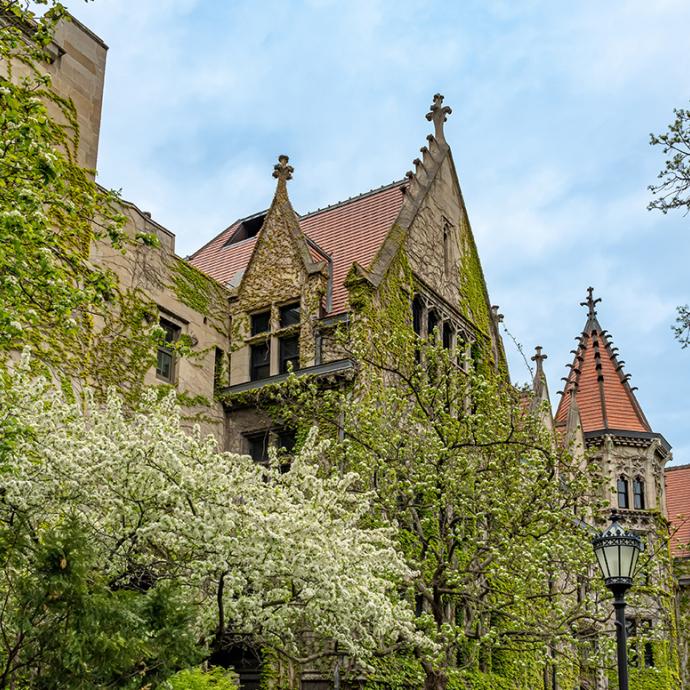
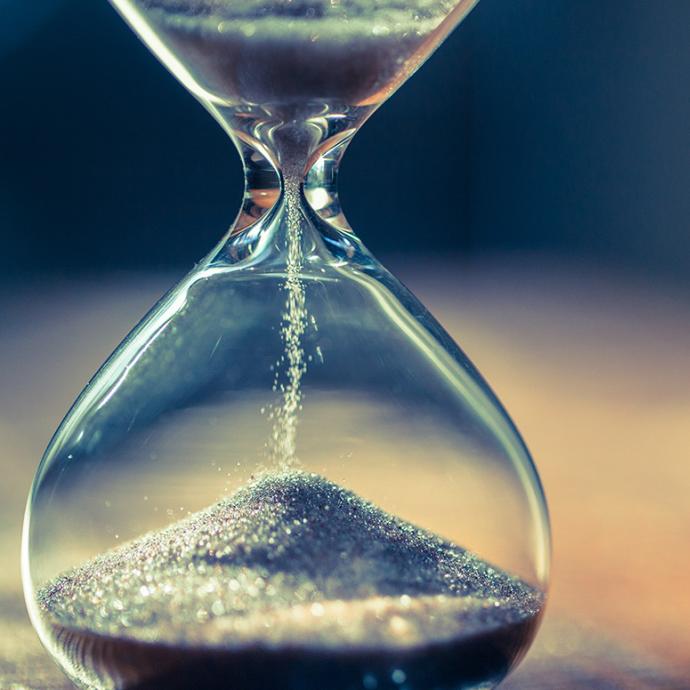
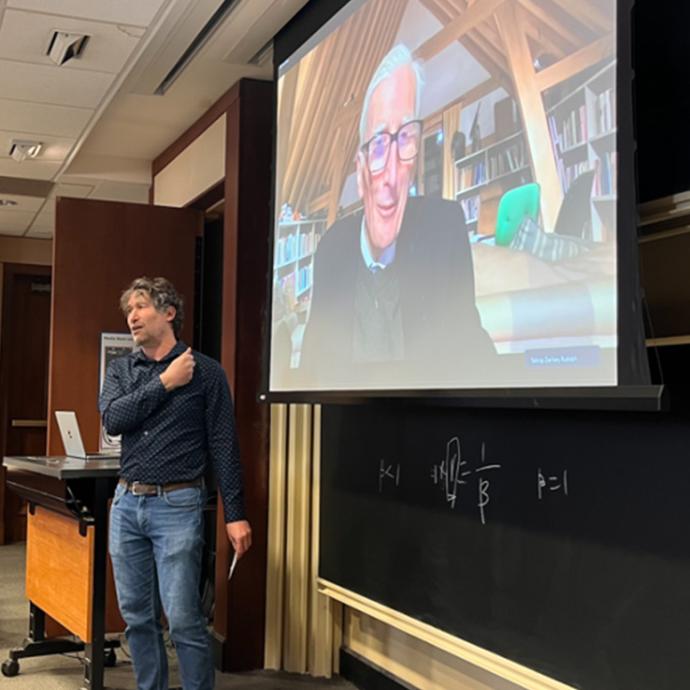
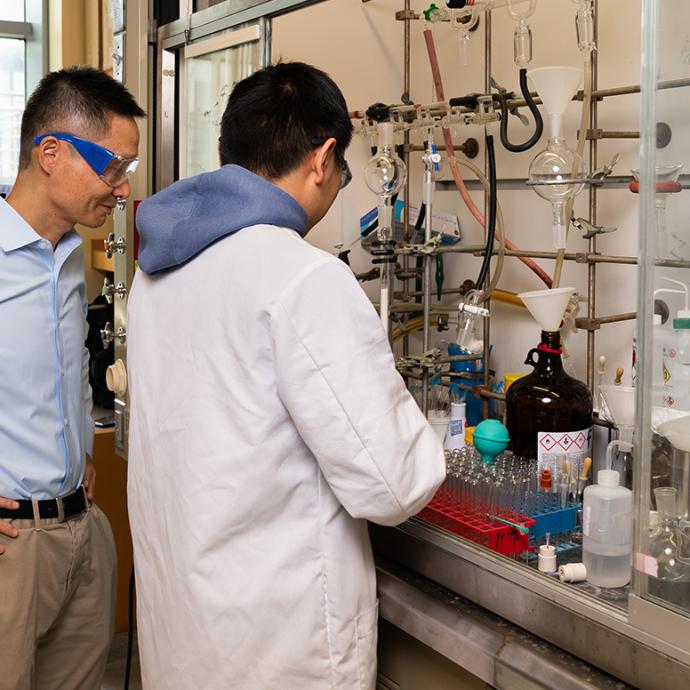

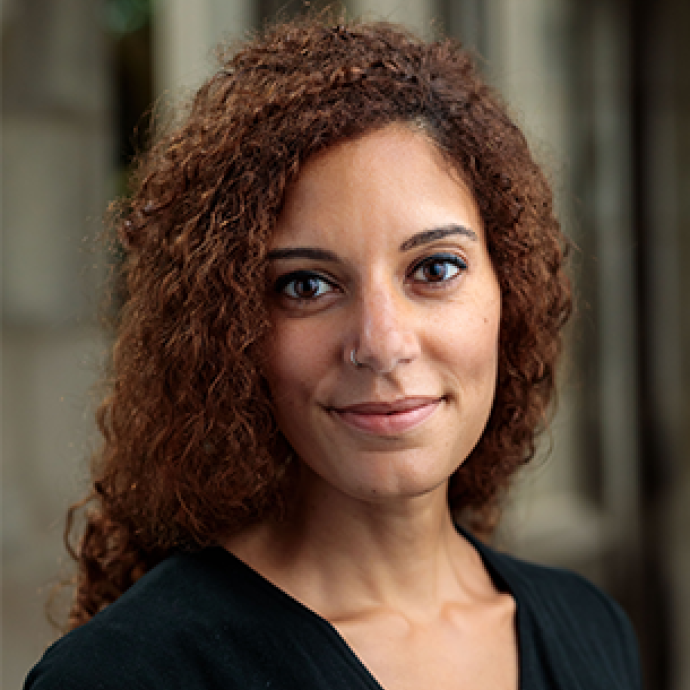
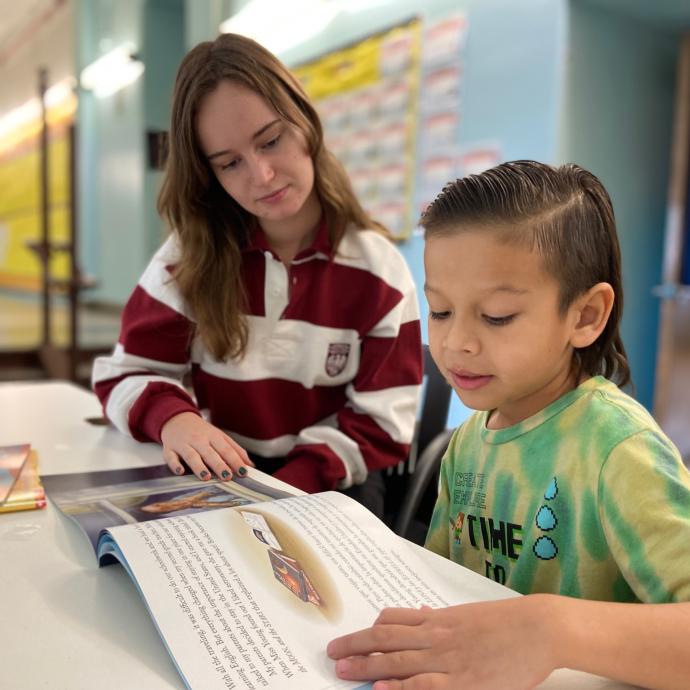



 —Prof. Chuan He
—Prof. Chuan He
